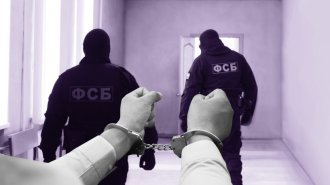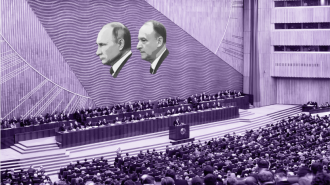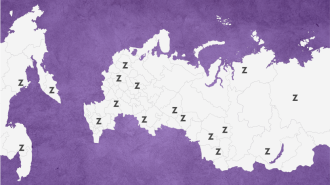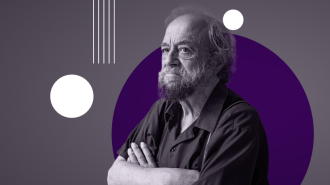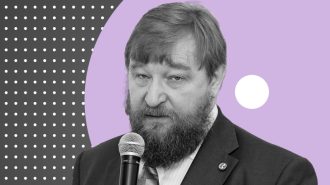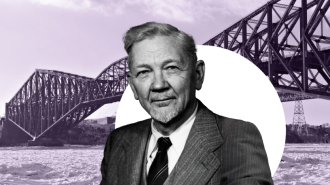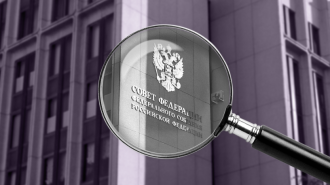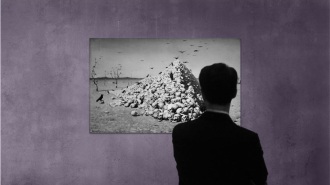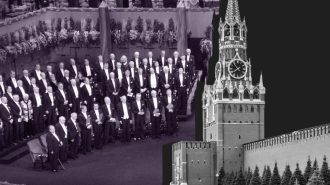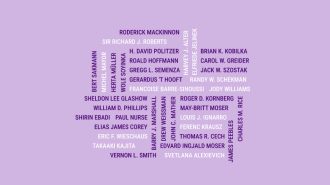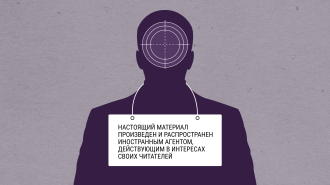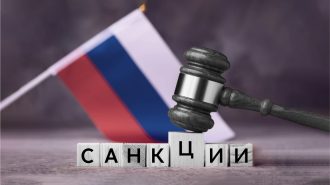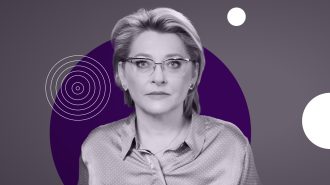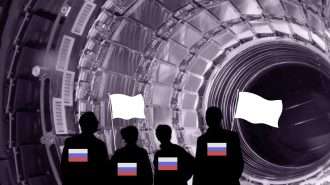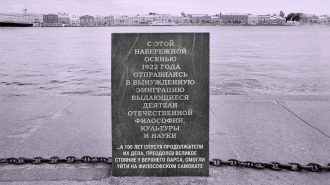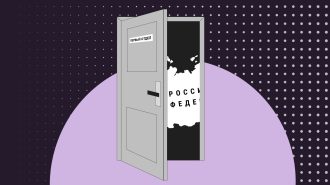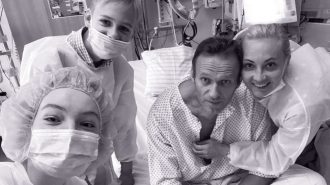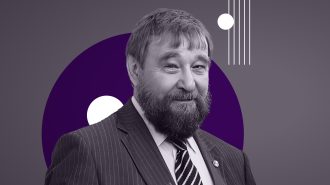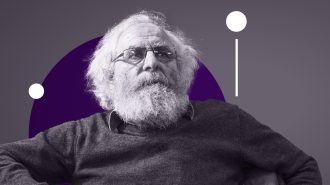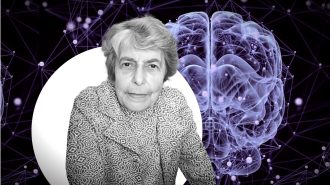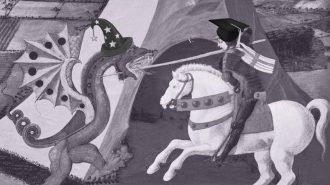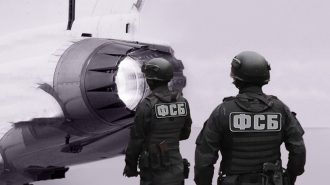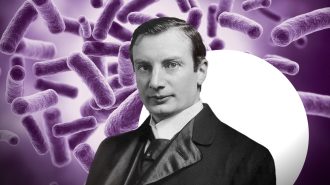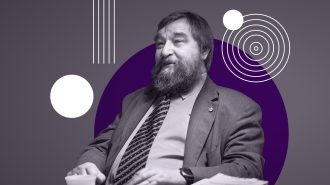In the spring of 2022, major publishers of scientific periodicals stopped collaborating with Russian organizations. In response, the Russian authorities initiated a “white list” of publications in which publication would be the basis for grant reporting. About 500 journals recently disappeared from the list - and returned with a recommendation to refrain from paying for open access in journals of the publishing house Elsevier, which announced that payments would be sent to support Ukraine. Scientists who do not follow this advice risk facing criminal charges article about treason.
At the end of June, acting Rector of the Russian State University for the Humanities named Andrey Loginov, ex-Deputy Minister of Justice of Russia. This happened against the backdrop of a public scandal around the “Higher Political School” named after Ivan Ilyin, headed by Alexander Dugin, created at the university. T-invariant analyzed Loginov’s biography and found that he has no less importance than Ilyin and Dugin, grounds to claim the title of the main ideologist of the “Russian world”.
At the beginning of March 2022, graduate students of the European University in Florence Emil Kamalov and Ivetta Sergeeva, political scientist Margarita Zavadskaya and sociologist Nika Kostenko launched a sociological project OutRush, during which they surveyed three waves of those who left. Who are these people, what do they do, what do they think about returning home, what do they hope for? Nika Kostenko, a researcher at Tel Aviv University, talks about the results of the T-invariant study.
Who are they - convinced patriots who brought the advance of the “Russian world” closer? Or banal opportunists who took advantage of the situation for mercantile purposes? T-invariant presents the results of a study of the biographies of heads of universities located in the occupied Ukrainian territories.
The Joint Institute for Nuclear Research in Dubna and the European Organization for Nuclear Research may sever official relations as early as this week.
Even before the war with Ukraine, about 150 young Russian scientists became Fulbright scholarsand got the opportunity to study at American universities. In March of this year, the IIE and Cultural Vistas organizations sponsoring the program were declared undesirable in Russia. T-invariant looked into what awaits fellows in their home countries and what alternatives young scientists see for themselves.
The tenth essay in the “Creators” series is dedicated to Vladimir Yurkevich (also spelled as ‘Yourkevitch’), an outstanding shipbuilder who built ships in Russia, France, and America. He improved the ship hull and developed radio-controlled ships without a crew. T-invariant continues the “Creators” project together with RASA (Russian-American Science Association).
Academicians turned to Vladimir Putin with a proposal to head a new body of the Russian Academy of Sciences - the Board of Trustees. But not everyone was able to vote for this decision. FSO employees blacklisted more than twenty scientists and did not allow them to attend the General Meeting of the Russian Academy of Sciences.
Censorship has actually returned to Russian book publishing, and the state’s special attention today is connected with LGBT issues. Some books are withdrawn from sale, others are removed from the school curriculum, and others are published with pages painted over. In an interview with T-invariant, cultural historian, candidate of philological sciences Mikhail Edelshtein explained what these measures are connected with, how the current situation differs from military censorship of the last century, and what role “offended graphomaniacs” play in all this.
The ninth essay in the “Creators” series is dedicated to Alexander Prokofiev-Seversky, pilot, aircraft designer, military analyst, one of the developers of modern military aviation doctrine. The “Creators” project was created jointly with RASA (Russian-American Science Association).
In the third year after the start of Russia’s full-scale invasion of Ukraine, journalism faculties and media departments at all universities in the country changed their policies. the transfer of experience to novice journalists from military officers, Z-bloggers and even former prisoners has become regular and widespread.
In Novosibirsk, they are considering the criminal case of corresponding member of the Russian Academy of Sciences Oleg Kabov, which was initiated by the FSB. This is the first case in Russia when a scientist is being tried for his allegedly unsatisfactory work, and scientific and technical expertise forms the basic part of the charge. The very fact that you can go to prison for poorly conducted research is a new page both in the history of Russian science and in the history of domestic jurisprudence. Kabov's case is a challenge to the entire scientific community. It will show whether science in Russia can defend its right to exist.
Vladimir Putin updated and expanded scientific council at the Security Council of the Russian Federation. T-invariant analyzed the biographies of all its 174 members. The median age of the council is pre-retirement, 63.5 years. The oldest member is 94 years old.
February 24, 2022 is a date that divided the lives of millions of people into before and after. Millions of Ukrainians became refugees, hundreds of thousands of Russians were forced to leave the country, thousands of people became political prisoners. Schools and universities have been invaded by Z-ideology. This gave rise to a new Russian reality, which more than 75 sociologists, historians, demographers and economists studying Russian society tried to comprehend.
Interview with Breakthrough Prize winner Alexander Zamolodchikov about the quantum field theory and how it feels to be involved in a domain that is completely impossible to imagine and understand. We also discussed emigration and how, in the midst of Perestroika, he realized that things would not be good in Russia.
The FSB completed investigative actions in the case of corresponding member of the Russian Academy of Sciences Sergei Abramov a year later: the materials were transferred to the court, which must set a date for the hearing. According to T-invariant, Abramov’s case involves seven donations of 1,000 rubles each. The scientist himself has repeatedly denied his guilt, including denying that he made these translations.
The eighth essay in the “Creators” series is dedicated to Stepan Timoshenko, one of the founders of modern applied mechanics. In the “Creators” project T-invariant in collaboration with RASA (Russian-American Science Association) continues to publish a series of biographical essays about people from the Russian Empire who made significant contributions to world science and technology.
University Transparency Laboratory (Lupa), with the help of the free online community Dissernet, analyzed the activities of expert councils of the upper house of the Russian parliament. It turned out that 10% of experts advising senators on the laws they pass have violations of academic ethics.
How does war become routine, heroic and ordinary? Do you need to look at photographs of hostages every day? Where is the line between adapting to war and rejecting conflict? These questions were discussed by the participants in the discussion “Normalization of Evil” - urban geographer Aleksey Novikov, visiting researcher at Ariel University Viktor Vakhshtain and communication specialist Grigory Ogibin.
42 Nobel laureates in an open letter called on world leaders not to recognize the legitimacy of Putin as president: “The war in Ukraine and the murder of Alexei Navalny do not concern only Russia and Ukraine. The Putin regime has shown that it poses a direct and clear threat to all humanity.”
42 Nobel laureates called on world leaders to increase aid to Ukraine, protect political prisoners in Russia and not recognize Putin as the legally elected president.
According to the Ministry of Justice, “the T-invariant project opposed the special military operation in Ukraine and carried out public actions aimed at creating a negative image of the Armed Forces of the Russian Federation.”
What could be the consequences of the break with CERN for Russian high-energy physics? T-invariant's questions were answered by the co-founders of the free online community "Dissernet" - physicists Andrei Rostovtsev and Andrei Zayakin.
The Reforum has published five tasks for the restoration of Russian science, proposed by T-invariant editor-in-chief Olga Orlova.
T-invariant has become aware of the reaction of the Ministry of Education and Science and the CERN-Russia Committee to the final decision of CERN to exclude Russia from the list of partners, as well as to stop working with scientists with affiliations in Russian research institutes and universities.
Over the course of two years, several thousand scientists left Russia, sometimes entire teams were evacuated. Some of them managed not only to survive, but to be reborn in a new reality. In February 2024, the Agency for Control and Quality Assurance of Higher Education of Montenegro decided on state accreditation of the Faculty of Liberal Arts and Sciences (FLASH), which was created by former employees of the Moscow Higher School of Social and Economic Sciences. Teodora Shanin. And this is not the only example of how fugitive Russians are reassembling academic projects.
T-invariant opens a series of publications related to the second anniversary of the war with Ukraine. In the first investigation, we tell how the FSB of the Russian Federation launched the largest “case of scientists” in modern Russia, pursuing the signatories of an anti-war letter throughout the country.
On February 16, 2024, came the terrible news — Alexei Navalny was killed. His death has become a personal tragedy for millions of people. Putin's regime has shown that it will stop at no crime in pursuit of its goals.
The seventh essay in the “Creators” series is dedicated to Igor Sikorsky, one of the founders of modern aviation. In the “Creators” project, T-invariant together with RASA (Russian-American Science Association) continues to publish a series of biographical essays about people from the Russian Empire who made significant contributions to world science and technology.
In 2023, the FSB began subjecting dissenters to punitive psychiatry. Corresponding Member of the Russian Academy of Sciences Sergei Abramov left the psychiatric hospital after the examination and became familiar with the updated version of the charges. T-invariant spoke with the scientist about his life with the “extremist” label, his political views and the reasons for the security forces’ attack on the Russian supercomputer industry.
How did the idea come about to build an “island of academic intelligence” using Google Quantum? How to create conditions under which students will pursue science and not a career? Explains the initiator of the PhD program in quantum condensed matter physics QT Future at the University of Ljubljana Mikhail Feigelman.
The sixth essay in the “Creators” series is dedicated to Tamara Dembo, an outstanding psychologist whose work on the study of “anger as a dynamic problem” and the rehabilitation of people with disabilities remains scientifically relevant to this day. The “Creators” project, created by T-invariant together with RASA (Russian-American Science Association), talks about people from the Russian Empire who made significant contributions to world science and technology.
Important Stories published a text by T-invariant editor-in-chief Olga Orlova about how the Israelis were left alone with the war. A third of students are at the front, small businesses are on the verge of collapse, volunteers are saving farmers.
The Russian Academy of Sciences issued a memorandum “On the pseudoscience of astrology.” In dark times, even stating obvious things becomes a struggle for normality and resistance to chaos. We did a kind of backstage, telling some interesting facts about the preparation of the memorandum and the work of the Commission.
New detainees in the case of Siberian scientists from the Institute of Theoretical and Applied Mechanics (ITPM) named after. Christianovich of the Siberian Branch of the Russian Academy of Sciences, accused of treason, was scientist Vladislav Galkin from Tomsk. The human rights organization First Department is confident that the repressive campaign is growing and the next victim of the FSB could be absolutely any scientist who has worked on this topic as part of international collaborations.
In Togliatti, in the local special economic zone (SEZ), they can build another plant for the assembly of Iranian combat drones. There is no official information about this and in words the plans are purely peaceful. The EFKO group of companies, the founder of enterprises producing drones in Tolyatti, pretends that it has nothing to do with the plant. T-invariant looks at how this big business moved from projects with GM and Volkswagen to assembling deadly machines for the war in Ukraine.
The fifth essay in the “Creators” series is dedicated to Vladimir (Waldemar) Haffkine, the creator of the first effective vaccines against cholera and plague. At the end of the 19th century, Haffkine carried out the first mass vaccination in India. His laboratories have developed and produced tens of millions of doses of cholera and plague vaccines. In the “Creators” project, T-inavariant, together with RASA (Russian-American Science Association), continues to publish a series of biographical essays about people from the Russian Empire who made a significant contribution to world science and technology,
The Russian Federation's leading specialist in supercomputer systems was first checked by the FSB “for treason”, then kept under house arrest for six months on suspicion of “financing an extremist organization”. After fruitless attempts to plant according to the proven Soviet tradition, the “fool” is used. Sergei Abramov, corresponding member of the Russian Academy of Sciences, founder of a number of innovative companies, is planned to be sent to a psychiatric hospital for three weeks on November 30 for “conducting an inpatient examination.”Because the outpatient motivation of the scientist who organizes the supercomputer forum in Pereslavl-Zalessky, even while under investigation, the FSB could not understand even after eight months.
T-invariant publish open letter by Alexander Kabanov, Mescal S. Ferguson Distinguished Professor, Director, Center for Nanotechnology in Drug Delivery Chapel Hill, UNC. He writes: "The terrorist attack on Israel on October 7, 2023, shocked me deeply. I was also disappointed by the statement issued by the UNC Chapel Hill Faculty, Graduate Students, and Staff Regarding Justice in Palestine, which said, among other things, “…We believe that an understanding of such loss must be situated within the historical and political context of ongoing colonial oppression.” On November 3, 2023, I sent a brief note to about 40 UNC faculty members who had signed this statement by then..."













